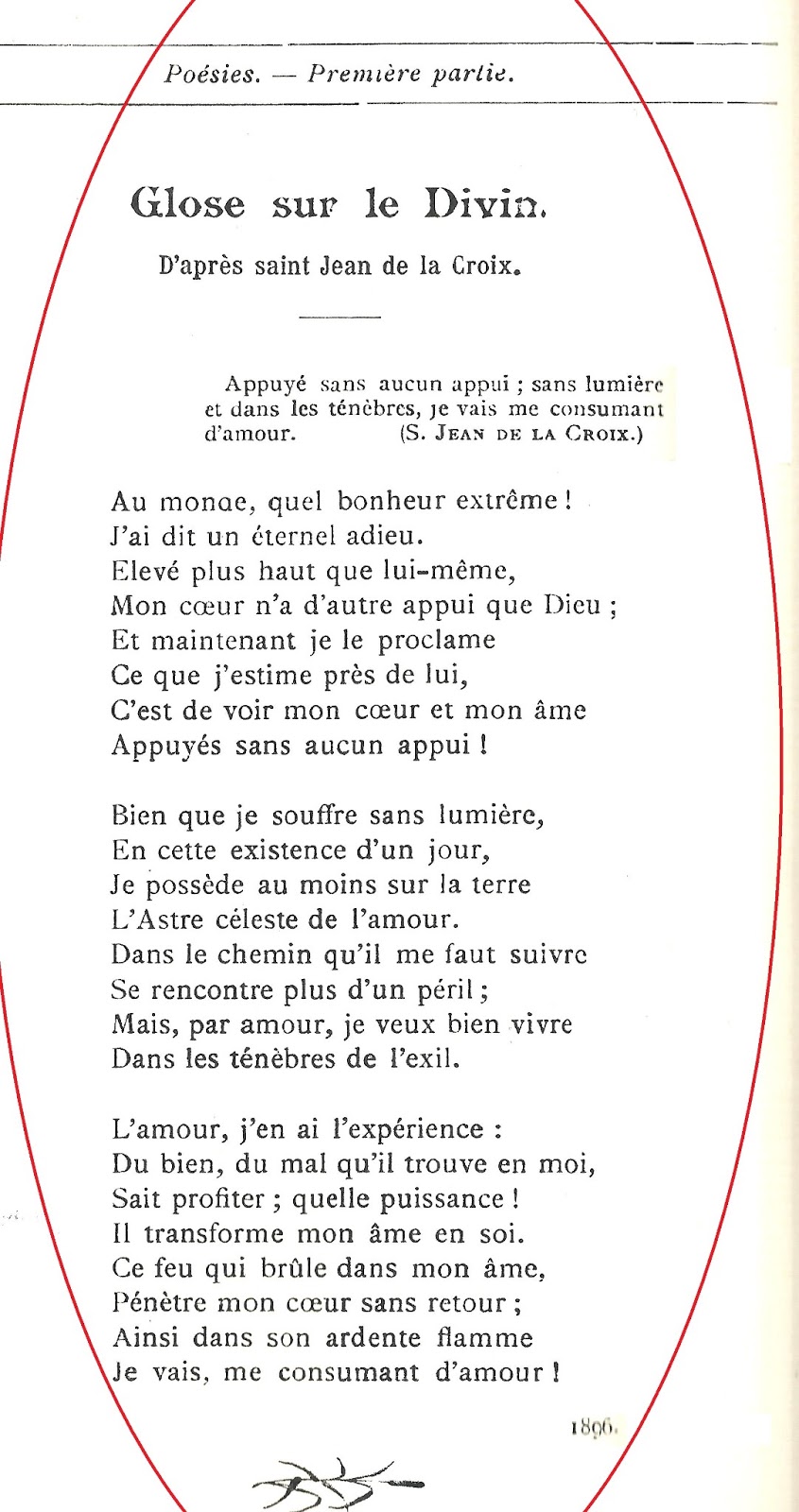Dear Fr. Edward,
Thank you.
Almost simultaneously, you send mighty deliveries through the Web.
Both the poem and the encyclical immediately save the hours and Sunday
to enter into these competing illuminations of mind and heart.
to enter into these competing illuminations of mind and heart.
- Mary as Queen of Apostles
- "Lumen Fidei" [42,800 Google hits including the Catholic Herald Online].
In Dno.
fr. Donald
domdonald.org.uk
----- Forwarded Message -----
From: edward ...
To: Donald ...
Sent: Saturday, 6 July 2013, 18:13
Subject: Pope Francis's Encyclical
From: edward ...
To: Donald ...
Sent: Saturday, 6 July 2013, 18:13
Subject: Pope Francis's Encyclical
On the Encyclical "Lumen Fidei" of Pope Francis -https://docs.google.com/document/d/1mUhSDWW-IdKDYmfeKYudyhZ2w1iqhv1RX2bxEFZL4qs/edit?usp=sharing
Dear Father Donald,
Here is the text with which I hope you will not be disappointed.
Outside a strong wind is blowing.
On Monday the Sisters take me on a trip to see a geyser and a waterfall and something else. Things I have seen before. I just know the road between Stykkisholmur and Reykjavik.
Blessings from
fr Edward O.P.
++++++++++++++++++++++++++++
----- Forwarded Message -----
From: edward booth <booth.edward@gmail.com>
To: Donald Nunraw <nunrawdonald@yahoo.com>
Sent: Saturday, 6 July 2013, 10:16
Subject: Some more lines = with a second letter to follow
From: edward booth <booth.edward@gmail.com>
To: Donald Nunraw <nunrawdonald@yahoo.com>
Sent: Saturday, 6 July 2013, 10:16
Subject: Some more lines = with a second letter to follow
Mary as Queen of Apostles Saturday of Our Lady 15 June2013 -https://docs.google.com/document/d/1p_ML_Jo4WxgwRu9x8MQjNylhbVLmopTsrvFszCkTBtc/edit?usp=sharing
----- Forwarded Message -----
From: Sent: Saturday, 6 July 2013, 10:26
Subject: Another poem and some news
From: Sent: Saturday, 6 July 2013, 10:26
Subject: Another poem and some news
Dear Father Donald,
Here is a second poem of a different sort.
Just to say that you asked me to write a poem on Pope Francis's ([lus
Pope Benedict's) encyclical..
Well I looked at the text after I downloaded it (and we had a visit from
the Bishop and then exposition). I have written some lines even though
the result is long and complex.
When I have prepared the sermon for next Sunday to send to the
translators, I will type it out improving and excising where necessary and I
hope to send it to you before gong to bed tonight. For Heather as well please!
Blessings and greetings to al your brethren!
fr Edward
Mary as Queen of
Apostles
Mary bears title after title:
how does she sustain that of ‘Queen of Apostles’?
She began as Mother of Judaism’s Messiah and Christ
and that - - - - - -Lumen Fidei: A Summary on Pope Francis' First Encyclical
 |
| Focus |
http://www.focus.org/blog/posts/lumen-fidei-a-summary.html
Lumen Fidei: A Summary on Pope Francis' First Encyclical


Pope Francis has released his first encyclical along with some help from Pope Benedict XVI who completed most of the draft before he resigned from the Papacy.
First, this encyclical is fantastic. I think the Church will be thinking, praying, and quoting this one for a very long time. The Church, especially in the West, is hungry for a renewal of the faith. During this Year of Faith, this encyclical on faith is a tremendous addition to the conversation that is going on throughout the world.
Second, the purpose of this blog post is to give a summary of the encyclical. After its release, there will be plenty of news articles about the encyclical that will report a few of the major themes or quotes of the document.
[Follow Pope Alarm on Twitter or Like us on Facebook to receive to get these quotes and share them with others].
Others will want to read the entire document, but mig - - - - -


+by+de+Lisieux+Th%C3%A9r%C3%A8se+(12+Jul+2011)+-+Kindle+eBook.jpg)

